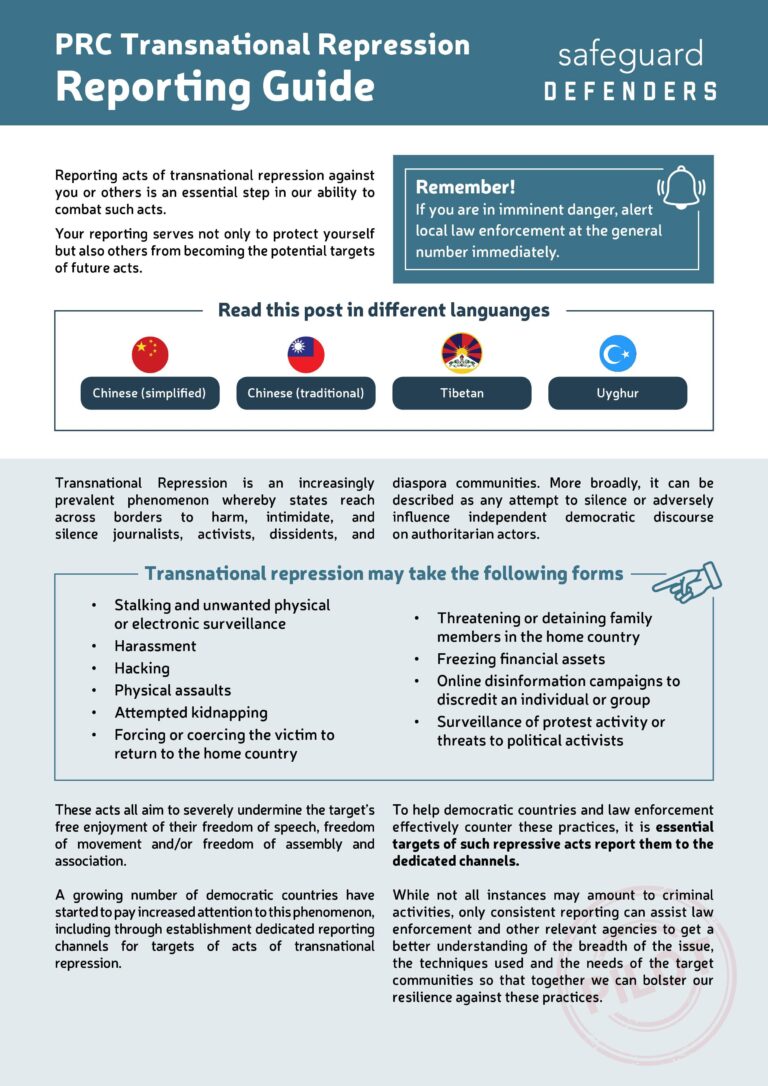The United Kingdom faces a mounting challenge as transnational repression increasingly threatens the rights and freedoms of its diverse communities. In a recent report titled “From Awareness to Action: Combating Transnational Repression in the United Kingdom,” Freedom House sheds light on how authoritarian regimes extend their reach beyond borders to intimidate, silence, and control dissenting voices on British soil. This exposé not only highlights the growing prevalence of such tactics but also calls for urgent and coordinated responses from government, civil society, and law enforcement to safeguard democracy and uphold fundamental human rights.
Understanding the Scope of Transnational Repression Targeting UK Residents
Transnational repression has evolved into a critical challenge for the United Kingdom, where residents from diverse backgrounds face intimidation and coercion from foreign governments aiming to silence dissent beyond their borders. These acts extend beyond mere surveillance, often including threats, harassment, and even physical attacks executed within UK territory. Targets frequently encompass political activists, journalists, and diaspora communities who vocally criticize their home regimes, turning personal freedoms into battlegrounds for geopolitical control.
Understanding the multifaceted nature of this repression is vital for developing effective countermeasures. Key characteristics include:
- Cross-border intimidation: Leveraging diplomatic channels and local assets to monitor and disrupt the lives of exiled dissidents.
- Cyber operations: Utilizing digital surveillance and hacking to silence or discredit opposition figures.
- Legal or bureaucratic harassment: Exploiting immigration and law enforcement systems to destabilize targeted individuals.
| Modus Operandi | Impact on Targets |
|---|---|
| Surveillance and Tracking | Psychological distress, loss of privacy |
| Smear Campaigns | Damaged reputation, social isolation |
| Physical Threats | Increased fear, risk to personal safety |
Government Initiatives and Legal Frameworks Addressing Cross-Border Intimidation
In recent years, the United Kingdom has significantly stepped up its response to the challenges posed by cross-border intimidation, reflecting a broader commitment to safeguarding civil liberties beyond its borders. Key government initiatives involve coordinated efforts among intelligence agencies, law enforcement, and diplomatic channels to identify and counteract transnational repression tactics. These measures include enhanced visa scrutiny for individuals linked to state-sponsored harassment, the establishment of specialized units to support victims, and strategic partnerships with international organizations to share intelligence and best practices. Most notably, the UK’s Magnitsky-style sanctions regime targets perpetrators of human rights abuses abroad, signaling a move from symbolic condemnation to tangible accountability.
Alongside these initiatives, the legislative framework has evolved to provide stronger protections for those at risk. The introduction of new offenses under the Criminal Justice Act specifically addresses harassment and threats directed at UK residents by foreign agents, recognizing the unique nature of such crimes. Complementing existing privacy and anti-stalking laws, the legal infrastructure now empowers law enforcement with clearer mandates and enhanced investigative tools. The table below summarizes key components of the UK’s approach:
| Initiative | Description | Impact |
|---|---|---|
| Magnitsky-style Sanctions | Targeting foreign human rights violators with travel bans and asset freezes | Disrupts funding and limits international mobility |
| Specialized Police Units | Dedicated teams investigating cross-border intimidation cases | Improved victim support and case resolution rates |
| Criminal Justice Amendments | New offenses addressing foreign state harassment | Legal clarity and stronger prosecution avenues |
Community Strategies and Policy Recommendations to Strengthen Civil Liberties
To effectively counter the growing threat of transnational repression undermining civil liberties, communities must mobilize around shared knowledge and coordinated advocacy. Grassroots organizations and local human rights groups should prioritize establishing safe spaces for dialogue, enabling victims and witnesses to report abuses without fear of retaliation. Additionally, fostering partnerships with tech experts can help develop secure communication platforms, ensuring sensitive information remains protected. Key community-driven strategies include:
- Educational campaigns that raise public awareness about the methods and risks of transnational repression.
- Legal aid networks providing accessible support to targeted individuals within immigrant communities.
- Cultural exchange programs that strengthen societal bonds and reduce isolation of vulnerable populations.
Policy reforms must reflect these grassroots needs with clear, enforceable measures that promote transparency and accountability at every government level. The United Kingdom can lead by example through legislative frameworks that safeguard whistleblowers, enhance cross-border cooperation for monitoring abuses, and impose strict penalties on foreign actors involved in repression. The following table outlines critical policy areas and suggested interventions:
| Policy Area | Recommendation | Impact |
|---|---|---|
| Legal Protections | Expand asylum criteria to include targeted activists | Increased safety for victims |
| Surveillance Oversight | Independent review boards for intelligence agencies | Reduced abuse of power |
| International Collaboration | Bilateral agreements to investigate cross-border harassment | Improved accountability |




